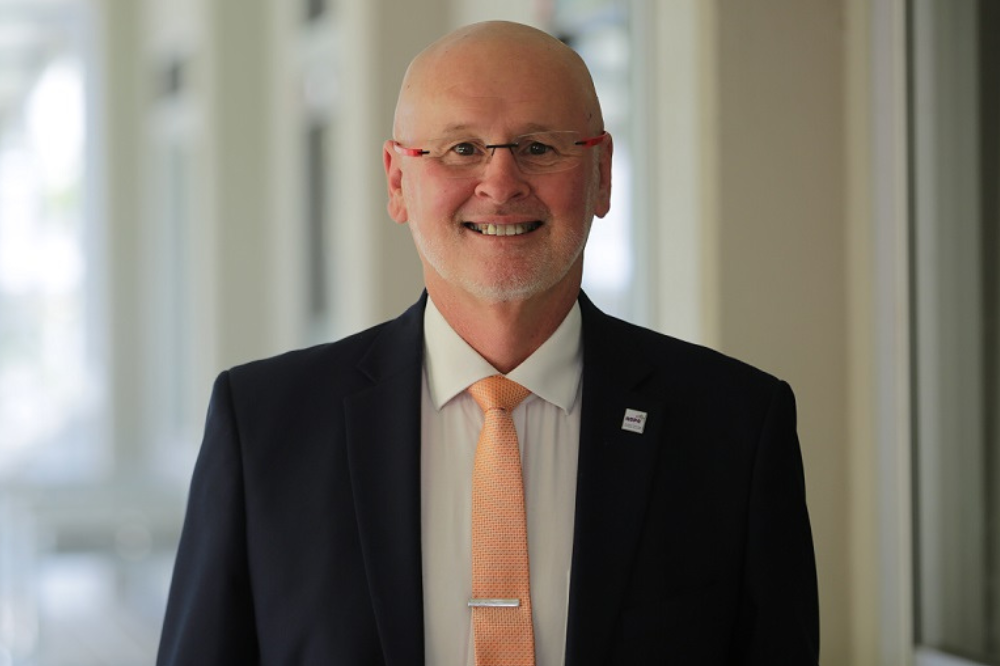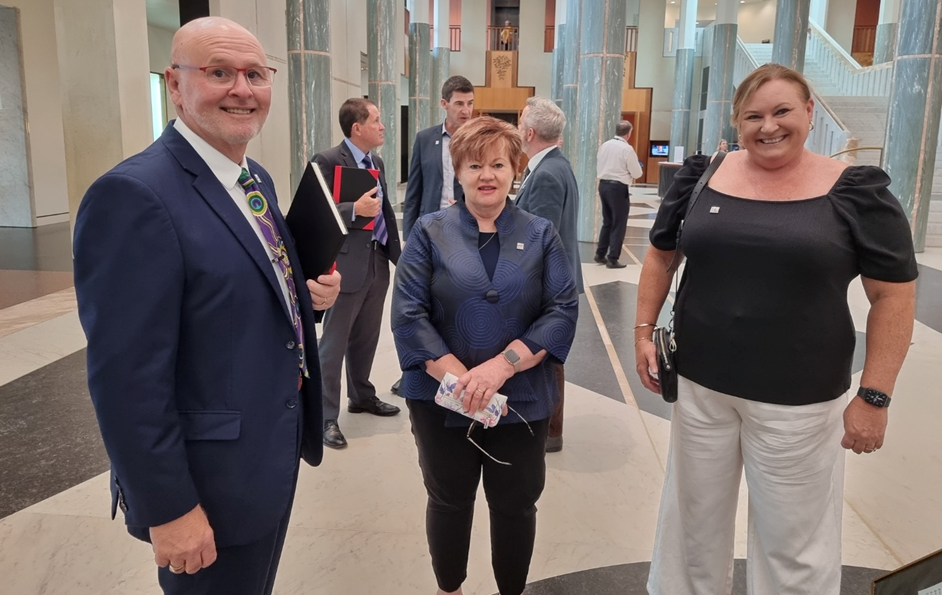
In 1984, Andrew Pierpoint began his teaching career with a single goal – and one that is shared by millions of educators around the world: to make a real difference in kids’ lives.
For Pierpoint, helping to give children from low-socioeconomic and disadvantaged backgrounds the best start in life has always been the driving force throughout his educational journey.
“The data says that kids who come from high socioeconomic areas will end up succeeding in life anyway, so I’ve always had an empathy for kids who come from low-socio economic areas through no fault of their own, which limits their chances in life,” Pierpoint told The Educator.
“So, I became a teacher to maximise their changes in life. Whichever door they choose, we need to give them as many keys to as many doors as education provides.”
Indeed, Pierpoint was given a very important key by his old biology teacher Mr Barrell, who he credits for inspiring him to become an educator in the first place.
“When I was a student, I had a very good relationship with my biology teacher, and he was the inspiration for why I went into teaching,” Pierpoint said.
“He had very high emotional intelligence and developed strong relationships with the students. That’s really what teaching, and education is all about.”
Pierpoint said Mr Barrell taught students the value of having meaningful, productive relationships – not just with the students, but every staff member and parent.
“Relationship building is the cornerstone of leadership.”
Indeed, Pierpoint has cultivated many rich, wholesome relationships throughout his career, which spans roles as a science teacher and principal across various educational landscapes, from complex rural and remote communities to bustling metropolitan areas.
In 2014, Pierpoint’s educational journey took an exciting turn when he was appointed president of the Queensland Secondary Principals' Association – a role that would see his influence felt on a state level. Four years later, he would become president of the Australian Secondary Principals’ Association, giving him a seat at the table among Federal, State and Territory education ministers and other powerful figures, to decide the trajectory of Australia’s education system.
Comparing the role of an educator back then to now, Pierpoint says the current trajectory is worrying.
He recalls that when he first began teaching, his expectations aligned with the reality of the job – and back then, it was markedly more straight-forward than what teachers and leaders experience today.
“The status and morale were both higher, and the work-life balance was achievable,” he said. “Everyone that I worked with in the school was very proud to be a teacher, and it was a very honourable profession.”
Pierpoint said people who lived in the communities where he taught were also very respectful of teachers, and very interested in what teachers had to say about their children.
“That was a remarkable difference to the ‘normal’ things we see today.”
For the past 12 years, the Australian Catholic University’s (ACU) annual Australian Principal Occupational Health, Safety and Wellbeing Survey has reported a serious decline in the physical and mental wellbeing of school leaders.
The latest data from the report, released in March this year, found Australian principals are working an average of 56 hours a week under the toughest conditions they’ve seen since the survey was first released in 2011.
Perhaps most worrying was the finding that an alarming 47.8% of principals triggered "red flag" alerts (generated when school leaders are at risk of self-harm, occupational health problems or serious impact on their quality of life) – a staggering 64% increase from 2022.
Principals and teachers deserve a louder voice
Pierpoint said while he can’t recall a particular point in time when things changed noticeably, the gradual weakening of principals’ voice has certainly exacerbated these issues.
Recognising this, all Australian principals’ associations – including the national principal associations for government, Catholic, independent, Aboriginal and Torres Strait Islander, and special education primary and secondary schools – joined forces in 2021 to launch the Coalition of Australian Principals (CAP).
Pierpoint co-convened the CAP along with Malcolm Elliott, the now outgoing president of the Australian Primary Principals Association, to amplify principals’ voice and formulate strategies that principals across all jurisdictions could use to improve the day-to-day running of their school, and the wellbeing of staff and students.
“Increasing the principal’s voice, making sure the principal is heard, and making sure the principal associations are heard, are probably the greatest challenges we have at the moment,” he said.
“If I can use this analogy, the Federal Government don’t tell the Australian Medical Association how to do appendectomies, and they don’t tell the Royal College of Engineers how to build bridges – but everyone seems really keen to tell us how we should run our schools.”
Pierpoint said it’s seldom appreciated that principals run large, complex, multi-million-dollar organisations on a day-to-day basis.
“A lot of the people making decisions around schools have been to school, but that’s it,” he said. “They should just ask us and involve us in the conversation, because a lot of the decisions that we’ve seen over the years have actually been detrimental to the education process.”

‘Governments must lead from the front’
When it comes to addressing the many complex issues that principals are facing across today’s education landscape, Pierpoint said the best thing governments – Federal, State and Territory – can do is to “lead from the front” and show that they’re both talking and listening to principal associations, and adopting some of what the associations recommend.
“The National Teacher Workforce Action Plan has short, middle, and long-term goals, but when looking at the short-term goals, we’re not going to see much of a difference in the availability of teachers for schools in the next year, because educating teachers requires a four-year turnaround,” he said.
“One of the main things we need to do is to turn the media rhetoric around. There are great things happening in our schools every day, but these are rarely reported in the media.”
Another long overdue change, says Pierpoint, is the role description of principals, which has not changed in more than 40 years.
“The role description that most principals have around the country is circa 1980 and that’s more than 40 years’ old now,” he said. “We need to look at the principals’ job and say this is a contemporary role model, this is what we expect principals to do today, and then interview them against those standards – not yesterday’s standards.”
Pierpoint says policymakers also more closely examine what is considered a non-delegatable task of a school principal.
“We’ve seen a proliferation of tasks that only can be done by the principal whereas in the past the principal would let their deputy have a crack and then the principal would sign off on it, so we need to make sure there is a balance between all those things,” he said.
“Schools must also be staffed appropriately to allow their admin and teachers to do their job – not do the myriad of other things they’re currently expected to do.”
In July, Pierpoint made the difficult decision to retire as ASPA president, with his duties coming to a formal end in mid-September 2023. However, when it comes to Pierpoint’s presence and influence in Australian education, it’s more of a ‘see you around’ than a ‘goodbye’. His existing work in education research with Monash University and the Queensland University of Technology will continue, as will his work with The Smith Family, where he will continue where he began 39 years ago, ‘fighting the good fight’ in the corner of young Australians who are most in need of support.
Looking ahead, Pierpoint stressed the importance of schools, governments, communities, and the media working together to highlight the inspiring, uplifting, and empowering things that are happening across Australia’s education system.
“We need to do this so we can raise not just the standard of education but the status of the profession to where it used to be, because it’s certainly not there anymore.”


